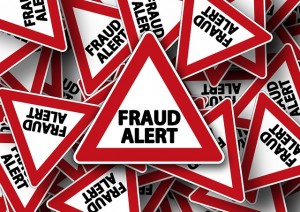How to spot a rogue accountant

You don’t want a rogue accountant on your team…you want someone you can trust – with knowledge, experience and a lot of credible advice and care.
Here is something I wrote which was published on Smart Company earlier this month…no Rogue Accountants at Healthy Business Finances. For original article, click here.
Many small business owners and entrepreneurs understand the benefits of leveraging outsourcing to scale their business. Smart business owners know that having a trusted advisor on their team can have immeasurable benefits. Outsourcing to a trusted financial advisor can lead to increased cash flow, business awareness, knowledge, accuracy, on time reporting and business forecasting for future growth.
However, not all finance professionals are bred the same and engaging a rogue accountant or bookkeeper can result in serious business and financial loss for those using their services.
“Unfortunately I’ve seen several examples of poor financial advice from a rogue accountant that has severely affected the lives of small business owners.”
One client came to me after their previous accountant had lodged 18 months of Business Activity Statements without telling the client what to pay, when to pay or providing copies. The client is still paying that debt off to the Australian Tax Office two years later.
Another client came to me asking for Business Activity Statements (BAS) to be prepared, as their previous accountant had registered them for goods and services tax (GST). I later discovered the previous accountant had never actually lodged the GST registration. Another registration had to be done and the ATO issued late lodgement penalties of $890 per outstanding BAS.
Observing the following guidelines will help you to avoid making the same mistakes and being stung.
1. Ask about the accountant’s qualifications
An accountant can be someone who has just finished university all the way through to a tax agent with more than 40 years’ experience, so be specific when asking about qualifications. Are they a chartered accountant (CA), a certified practicing accountant (CPA), a registered tax agent, a BAS agent – or none of the above? Be clear on the differences between these titles and where your potential hire sits before entering into a contract.
2. Ask about their professional affiliations
Ask if the accountant is a member of a professional association, such as the Institute of Chartered Accountants in Australia, Certified Practicing Accountants Australia or the Institute of Public Accountants. Professional members of these organisations are bound by the standards of the association. These associations also have complaint procedures in place if a member of the public is unhappy with the level of service provided by their accountant.
3. Experience comes with a price tag
Accountants who are also a CPA or CA have done a university degree as well as another three years of study. They are also required to undertake an additional 30 hours of training each year to keep their professional memberships active. Experience may cost you more but that experience will benefit your business.
4. Ask who will be actually doing the work
The person you met with may not end up be the staff member looking after your file, so ask who will be working on your business. Are they based in Australia or will your work be further outsourced to an offshore location? Outsourcing accounting to overseas providers presents some real risks to small business owners, especially in terms of the level of service and quality provided.
“As with any advisor, your relationship with your accountant should be built on trust. Therefore, don’t be afraid to ask questions before entering into a contract to ensure maximum benefit (and minimum risk) to your business.”
